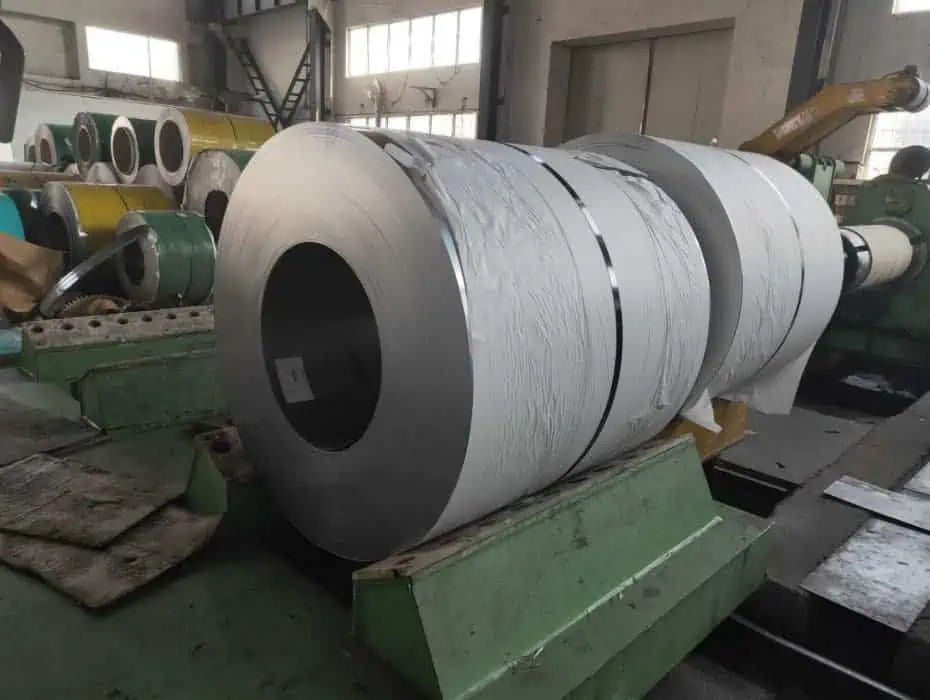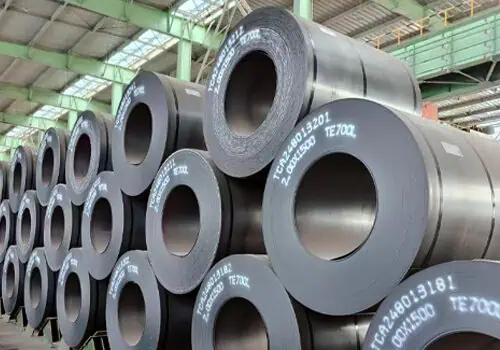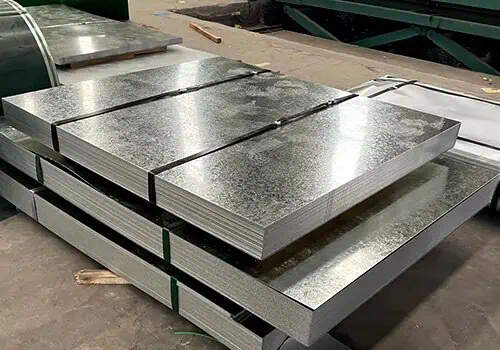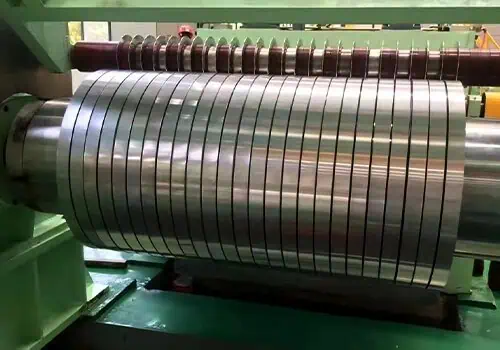Struggling to understand steel roll weight for shipping and pricing? This article breaks down every aspect you need to know about how much a coil of steel weighs.
How much does a coil of steel weigh? A standard coil of steel weighs between 5 そして 30 tons depending on the coil’s dimensions and steel type. Most export-ready coils from China weigh around 10–15 tons. You can use the steel coil calculator formula to get accurate weight based on width, 厚さ, length, and density.
Let’s dive deeper into weight ranges, factors, calculations, and coil usage.
How Much Does the Average Steel Coil Weigh?
When discussing the average weight of steel coils, it’s essential to consider export standards and manufacturing processes.
The average weight of a steel coil is typically between 10 そして 15 tons, which balances logistics efficiency and safety during container transport.
In international trade, particularly for Chinese exporters, coils weighing 10 に 15 tons are the norm.
These weights ensure easy container loading, reduce handling risks, and avoid penalties from overweight shipments.
Understanding the average weight of a steel coil helps buyers plan shipping and negotiate effectively with suppliers. If you’re wondering how much does a coil of steel weigh, or how heavy is a steel coil, remember that the answer depends on specifications and packaging practices in different markets.
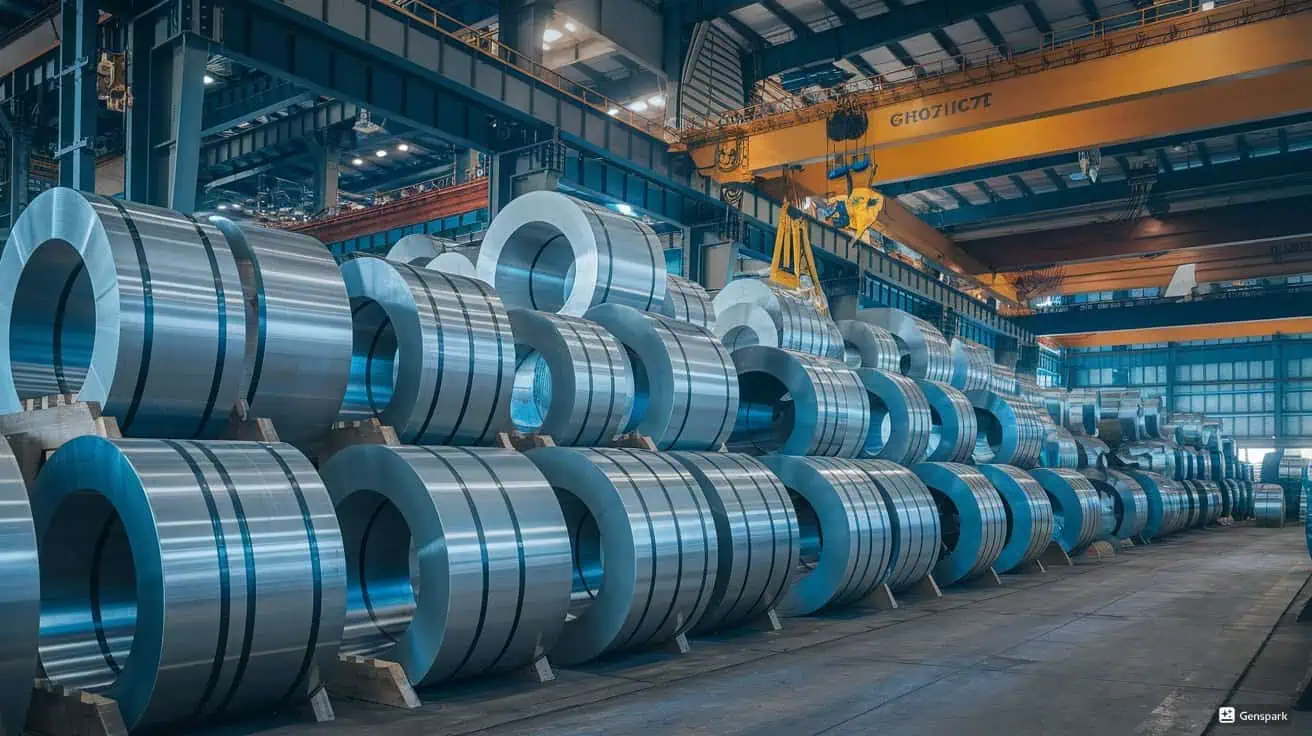
How Many Tons Is One Steel Coil?
The total weight of a single steel coil can range from 5 tons to 30 tons based on its size and the steel grade.
Most international shipments stay under 25 tons per coil to comply with container loading limits.
Exporters often ship coils in the 8–15 ton range, especially for 20ft containers.
For bulk orders or specialized industrial applications, coils above 25 tons are loaded using special equipment or on breakbulk vessels.
それで, if you’re asking how much do steel coils weigh, how much does a roll of steel coil weigh, or how much does a coil of steel weigh in tons, the answer depends on your supply chain and end-use.
What Factors Affect the Weight of a Steel Coil?
Multiple variables influence a coil’s total weight: 厚さ, width, density, inner and outer diameter, and the total length of the steel sheet.
The thicker and wider the coil, the heavier it will be.
The material type also plays a critical role.
例えば, 炭素鋼, ステンレス鋼, and aluminum have different densities, which impacts the final steel coil weight in kg or tons.
For buyers searching how do you calculate the weight of a steel coil, understanding these factors is key before using a steel coil calculator formula.
What Is the Density of a Steel Coil?
Density varies depending on the material: carbon steel = 7.85 g/cm³, stainless steel = 7.93 g/cm³, aluminum = 2.7 g/cm³, copper = 8.96 g/cm³.
These values are essential for accurate calculations.
A coil’s density must be matched with other dimensions in a formula to determine its weight.
For instance, even a slight density change between carbon and stainless steel will influence the final tonnage.
When checking how much does a coil of steel weight or the steel coil weight chart, always confirm the density used.
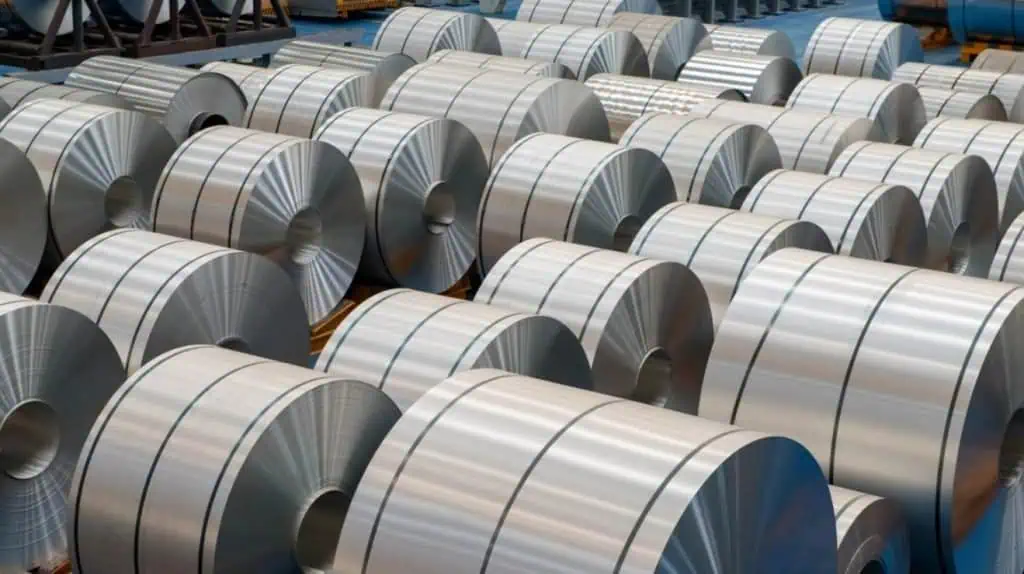
How to Calculate the Weight of a Steel Coil?
You can use this formula to calculate steel coil weight:
Weight = Width (メートル) × Thickness (メートル) × Length (メートル) × Density (kg/m³)
Example:
A carbon steel coil that’s 1250 mm wide (1.25 メートル), 1.2 mm thick (0.0012 メートル), そして 1000 m long would be:
1.25 × 0.0012 × 1000 × 7850 = 11.78 tons
This is how engineers and buyers precisely answer how do you calculate the weight of a steel coil, or how much does steel coil weigh. There are also online steel coil weight calculators available for quick reference.
For those comparing costs, weight is crucial because it directly influences how much does a steel coil cost and affects pricing per ton.
Why Is Steel Sold In Coils?
Steel is sold in coils because it maximizes transport efficiency, simplifies storage, and reduces damage.
A flat steel sheet is bulkier and prone to scratches. In contrast, coils are compact and easier to unroll for processing.
This format is used in industries like automotive, roofing, 工事, 造船, and appliances.
That’s why you’ll often search: what are steel coils used for.
Coiling also enables suppliers to deliver customized lengths and makes downstream manufacturing more flexible. So if you’re sourcing materials, knowing why steel is sold in coils will help you choose the right supply format.
Why Is Coil Weight Important in Shipping and Handling?
Knowing the exact coil weight is crucial to avoiding overweight container issues, customs delays, and equipment failures during loading.
Most 20ft containers have a max payload of 25 tons. Going above that can lead to additional costs or cargo rejection.
That’s why steel suppliers label weight precisely and often stick to an export-friendly range of 8–15 tons.
Handling equipment like forklifts and cranes also have load limits—so knowing how heavy is a steel coil prevents workplace accidents.
Shipping companies and freight forwarders may also request a steel coil weight chart or breakdown per coil for planning.
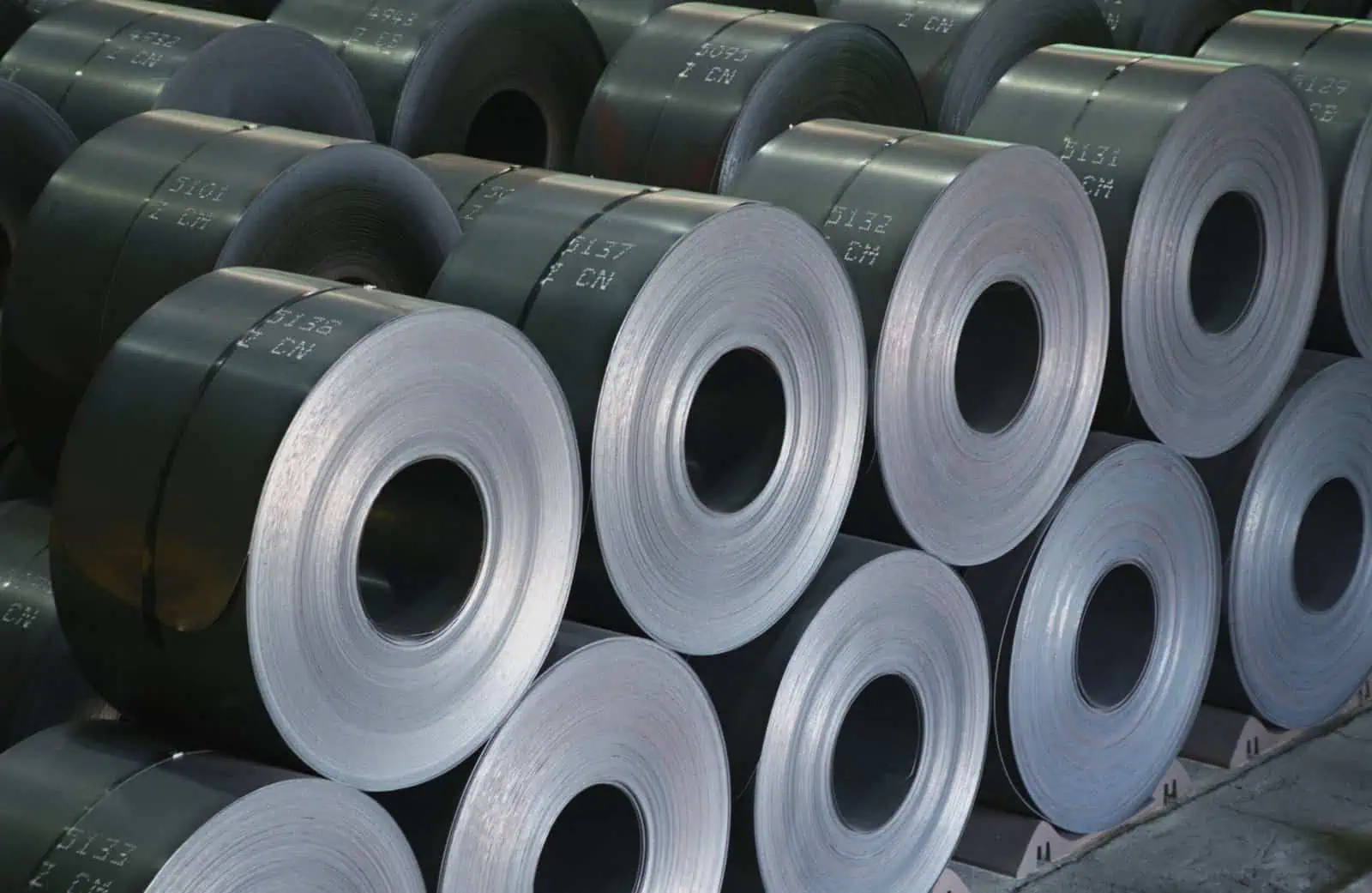
How Do Different Types of Steel Compare in Weight?
Different steels have different weights due to varying densities.
炭素鋼 is standard, but stainless steel is slightly heavier, and aluminum coils are significantly lighter.
Copper coils are heaviest and often used for electrical conductivity applications.
If you’re asking, how much does a roll of coil steel weight, the answer varies by type:
1-ton アルミニウムコイル ≠ 1-ton stainless coil (in length or volume)
Steel coil weight in pounds can vary even for the same size if materials differ
Always consider density and dimensions before comparing costs or specs.
What Is the Standard Weight Range for Steel Coils from China?
Chinese steel coils for export are typically manufactured between 8 に 15 tons to optimize shipping and container usage.
This range ensures they meet customs regulations, freight safety, and end-user handling limits.
Chinese mills also ensure coils are labeled with net and gross weight, edge-protected, and waterproof-wrapped for long-distance transit.
When sourcing, buyers often ask how much does a steel coil cost or how much does a coil of steel weigh in pounds, and Chinese suppliers provide both kg and lb metrics on the packing list.
In competitive markets, standardization helps reduce errors and streamline customs clearance, making China a leading supplier for steel rolls weight and volume exports.
まとめ
Understanding coil weight helps avoid shipping risks, ensures pricing accuracy, and simplifies material planning across industries.

